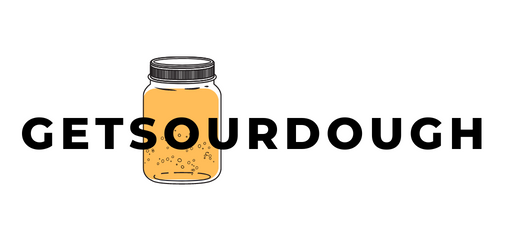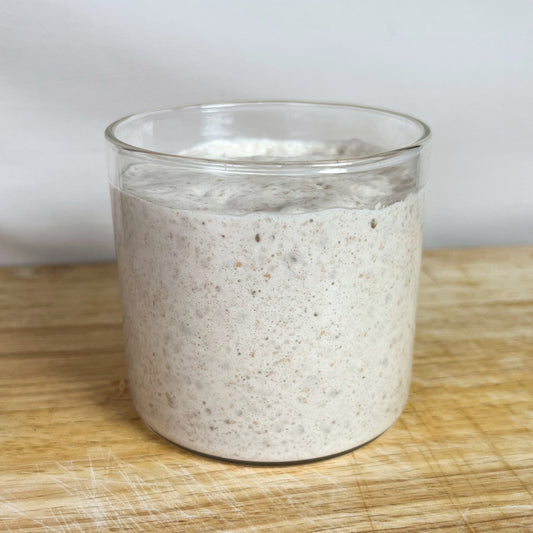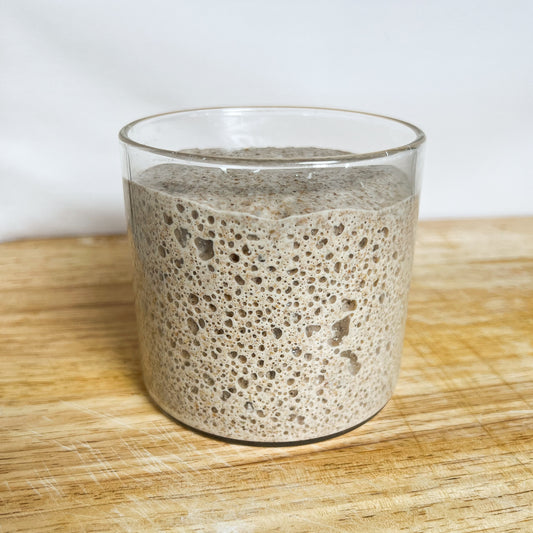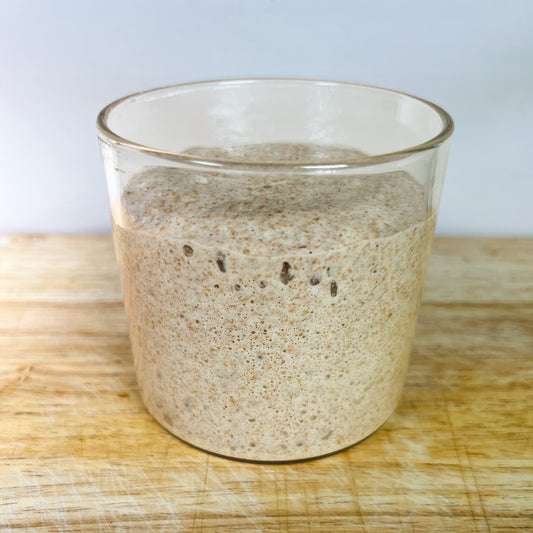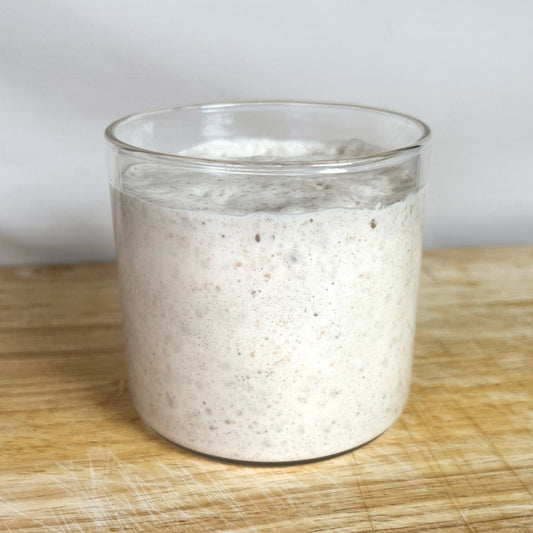Where to Buy Gluten-Free Sourdough Starter
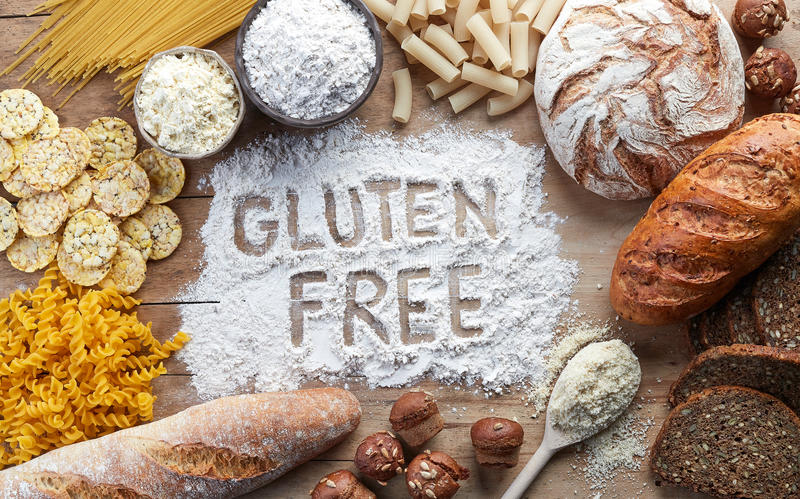
If you're someone who is gluten intolerant or has celiac disease, finding tasty and safe bread can be a challenge. Gluten-free bread can be expensive and often lack the texture and flavour of traditional bread. But fear not, there is a solution - gluten-free sourdough bread! And to make gluten-free sourdough bread, you need gluten-free sourdough starter.
Understanding Gluten-Free Sourdough Starter
While traditional sourdough starter is made from flour, water, and naturally occurring yeast and bacteria, gluten-free sourdough starter is a bit more complicated. To make gluten-free sourdough starter, you need to use alternative flours that are gluten-free, such as rice flour, quinoa flour, or buckwheat flour. At GetSourdough we prefer using buckwheat flour in our gluten free sourdough starters that we sell, as it has a mild and pleasant flavour and the closest texture to wheat flour. However all of these flours contain different carbohydrates and proteins, which means that the process of making gluten-free sourdough starter will differ slightly from traditional sourdough starter.
When making gluten-free sourdough starter, it's important to use a high-quality starter culture that has natural yeasts and bacteria. This will ensure that the starter is healthy and will produce the best results. You can purchase a starter culture online or at a health food store, or you can make your own by fermenting gluten-free flour and water.
How Gluten-Free Sourdough Starter Works
The natural yeasts and bacteria in the starter culture break down the carbohydrates and produce acid, which gives the bread its sour taste. When the starter is added to flour and water, it allows the bread to rise and gives it a light, airy texture.
It's important to note that gluten-free sourdough starter requires a longer fermentation time than traditional sourdough starter. This is because the alternative flours used in gluten-free sourdough starter don't contain gluten, which means that the starter needs more time to develop and become active.
Overall, gluten-free sourdough starter is a great option for people who want to enjoy bread without the negative side effects of gluten. With its unique flavour and texture, it's a delicious and healthy alternative to traditional bread.
Online Retailers for Gluten-Free Sourdough Starter
If you're looking to buy gluten-free sourdough starter, there are several online retailers that sell it. Here are some of the most popular ones:
GetSourdough
GetSourdough is a one-stop-shop for all your sourdough needs, specialising in high-quality, sourdough starters. GetSourdough's gluten free buckwheat sourdough starter is made to maintain the natural fermentation process, offering a unique and wholesome alternative to those with gluten sensitivities or dietary preferences.
Buy Gluten Free Sourdough Starter from GetSourdough
Etsy
Etsy is a great place to find unique and artisanal products, including gluten-free sourdough starter. You can find small-batch sourdough starters that are made with organic and non-GMO ingredients.
Many of the sellers on Etsy also offer helpful tips and instructions on how to use their sourdough starter. They may even offer personalized support to help you troubleshoot any issues you may encounter while baking your gluten-free sourdough bread.
Gluten-Free Specialty Stores
There are also specialty stores that sell gluten-free sourdough starter. These stores offer a range of different types of starters, and many of them also sell other gluten-free baking ingredients and products.
If you're new to gluten-free baking, specialty stores can be a great resource. They often have knowledgeable staff who can answer your questions and offer advice on which products to try. Some stores even offer gluten-free baking classes and workshops to help you improve your skills.
When shopping for gluten-free sourdough starter, it's important to read reviews and check the ingredients carefully. Look for starters that are made with high-quality, gluten-free ingredients and that have a good track record of producing delicious sourdough bread.
Local Stores and Bakeries
If you prefer to shop locally, there are several options for finding gluten-free sourdough starter. Not only will you be supporting local businesses, but you may also find unique and delicious options that you can't find in larger chain stores.
Health Food Stores
Health food stores often sell a wide range of gluten-free products, including sourdough starter. The advantage of shopping at a health food store is that you can get advice and recommendations from the staff on the products that they sell. They may also offer discounts or special deals on select products. In addition to sourdough starter, you can find a variety of gluten-free flours, baking mixes, and other ingredients at health food stores. This can be a great way to stock up on all the supplies you need for your gluten-free baking projects.
Supermarkets with Gluten-Free Sections
Many supermarkets now have designated gluten-free sections. These sections often stock gluten-free sourdough starters, as well as other gluten-free baking products. Check your local supermarket to see if they carry gluten-free sourdough starter. While you're there, take a look at the other gluten-free options they offer. You may be surprised at the variety of products available. Some supermarkets even offer their own gluten-free bakery section, where you can find fresh-baked goods made in-house.
Whether you choose to shop at a local bakery, health food store, or supermarket, there are plenty of options for finding gluten-free sourdough starter. Experiment with different brands and recipes to find the one that works best for you. Happy baking!
Tips for a Successful Gluten-Free Sourdough Starter
It's important to maintain your gluten-free sourdough starter to ensure that it stays active and healthy. Here are some tips:
- Store your starter in a glass jar in the refrigerator. This will help to slow down the fermentation process and keep your starter fresh.
- Feed your starter regularly, at least once a week. This will help to keep the yeast and bacteria active and prevent them from going dormant.
- Always use room temperature filtered water when feeding your starter. Cold water can shock the yeast and bacteria, while hot water can kill them.
- If you notice a liquid forming on top of your starter, don't worry, this is normal. Simply stir it back in before using the starter. This liquid is called "hooch" and is a sign that your starter needs to be fed.
- If you're not planning on baking bread for a while, you can discard a portion of your starter to keep it from getting too big. This will also help to maintain the health of your starter.
Happy baking!
